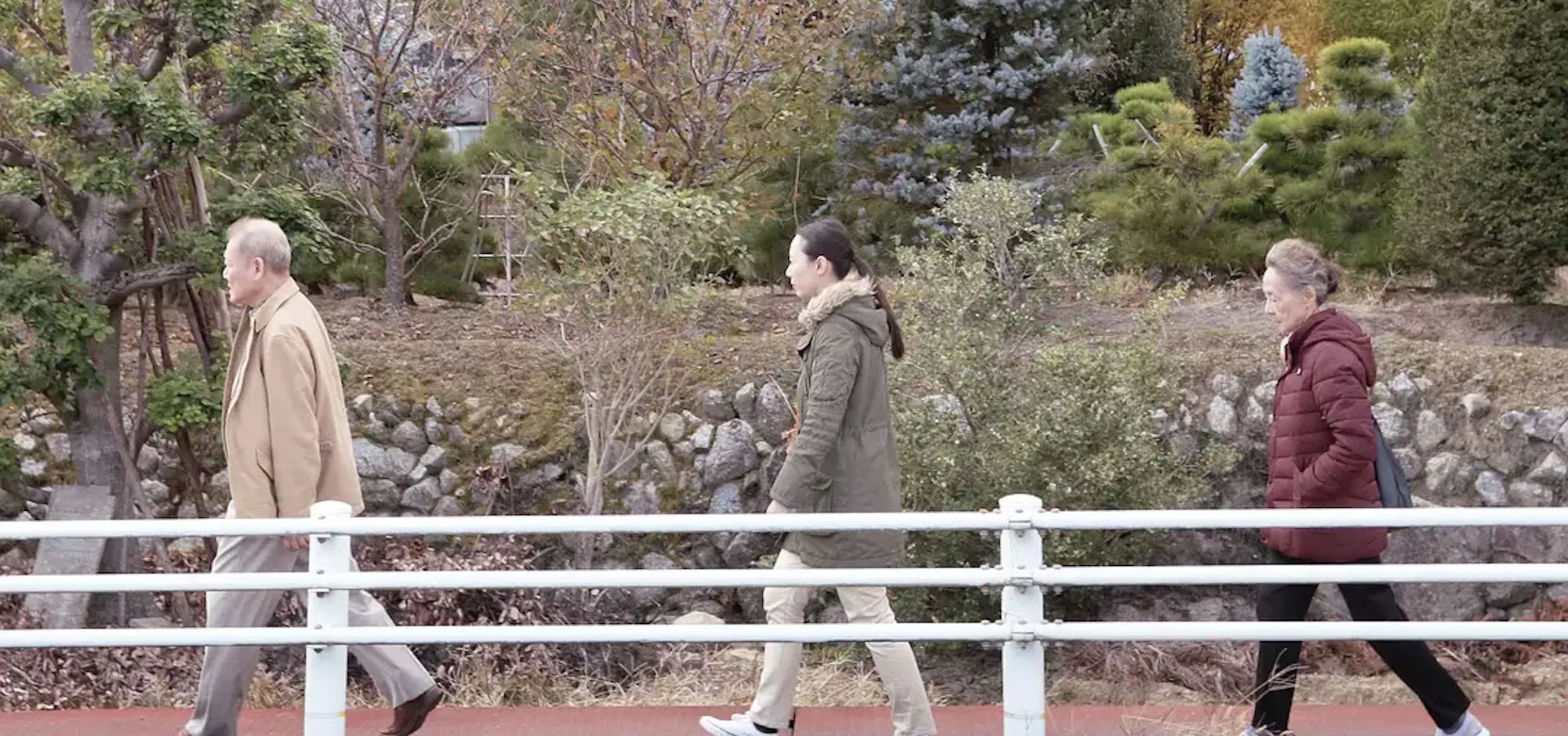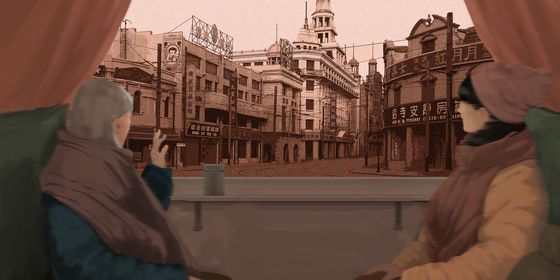Peng Fei's new movie explores how war orphans raised in China adapt to new lives in Japan
“My happiest time is when I read your letters,” goes a letter from the long-lost Japanese daughter of “Grandma” Chen Huimin, a Chinese foster mother played by Wu Yanshu in director Peng Fei’s Tracing Her Shadow. In Peng’s movie, these old letters are all that remains of a mother-daughter bond born out of the tragedy of the war with Japan.
The China-Japan co-production set in the southern Japanese city of Nara was originally meant to be an anti-war movie. But while searching for subject matter, Peng was struck by the true stories of abandoned Japanese orphans taken in by Chinese families as the last Japanese evacuated Manchuria in 1945. Though war remains the source of Peng’s story, the result is less a movie about conflict and more about family, belonging, and the search for companionship. The story also attracted legendary filmmaker Jia Zhangke, who is an executive producer on the project.
Tracing Her Shadow is based on the true experiences of these war orphans, known as riben yigu (日本遗孤, “Japanese orphans”) or canliu gu'er (残留孤儿, “leftover orphans”) in Chinese. When Japan surrendered, millions of Japanese children were left stranded in China. Many were evacuated back to their homeland, but several thousand were left behind, separated from their parents or abandoned. Some would die in the northern cold, but others were taken in by Chinese families and raised as their own.
When Japan and the People’s Republic of China normalized relations in 1972, these China-raised Japanese orphans had a route back to their ancestral homeland. Many returned and attempted to find their birth families, despite difficulty integrating into a country they had never known, a culture they had never experienced, and a language they had never learnt. Peng's fictional retelling of this phenomena follows Grandma Chen’s search for her foster daughter, who left China for Japan in the 1990s to look for her roots and settle down.
When Japan and the People’s Republic of China normalized relations in 1972, these China-raised Japanese orphans had a route back to their ancestral homeland. Many returned and attempted to find their birth family, despite difficulty integrating into a country they had never known, a culture they had never experienced, and a language they had never learned. Peng’s fictional retelling of this history follows Grandma Chen’s search for her foster daughter, who left China for Japan in the 1990s to look for her roots and settle down.
As part of his research for the film, Peng spent eight months in Japan listening to the stories of returned orphans and their families. The result is a film that takes its time as the story meanders through Nara’s quaint surroundings. Armed only with old letters (she does not even know the lost daughter’s Japanese name), Grandma Chen is joined in her quest by Xiao Ze (Ying Ze), the child of a war orphan, and an unnamed retired Japanese police officer (Jun Kunimura) who lives alone, with a shrine to his late wife in the corner of his living room.
The three form a temporary family unit as they follow leads and visiting other war orphan families in their search. Each of the three characters is adrift in their life: Xiao Ze works a monotonous factory job for a demanding boss, and struggles to define herself as a half-Chinese, half-Japanese woman. Her long-term relationship breaks down because her boyfriend’s family won’t approve their plan to marry. “Japanese people still treat me as Chinese,” reads another of Grandma Chen’s letters, read aloud by Xiao Ze.
In the quiet alleys of Nara, families with Chinese roots are easily identifiable by the satellite dishes they install on top of their home in order to tune in to northeastern Chinese channels, dwarfing the homes of their Japanese neighbors. The protagonists visit a Chinese-Japanese couple who perform communist “red” songs for their guests, to the glee of Grandma Chen and the quiet bemusement of their retired police officer companion.
Xiao Ze is the bridge between the two worlds of Grandma Chen and the police officer, translating and relaying information to each. But one of the film’s most touching scenes comes when Chen and Jun Kunimura’s character silently share photos of themselves in their youth—a connection formed by simple reminiscence for a time past.













